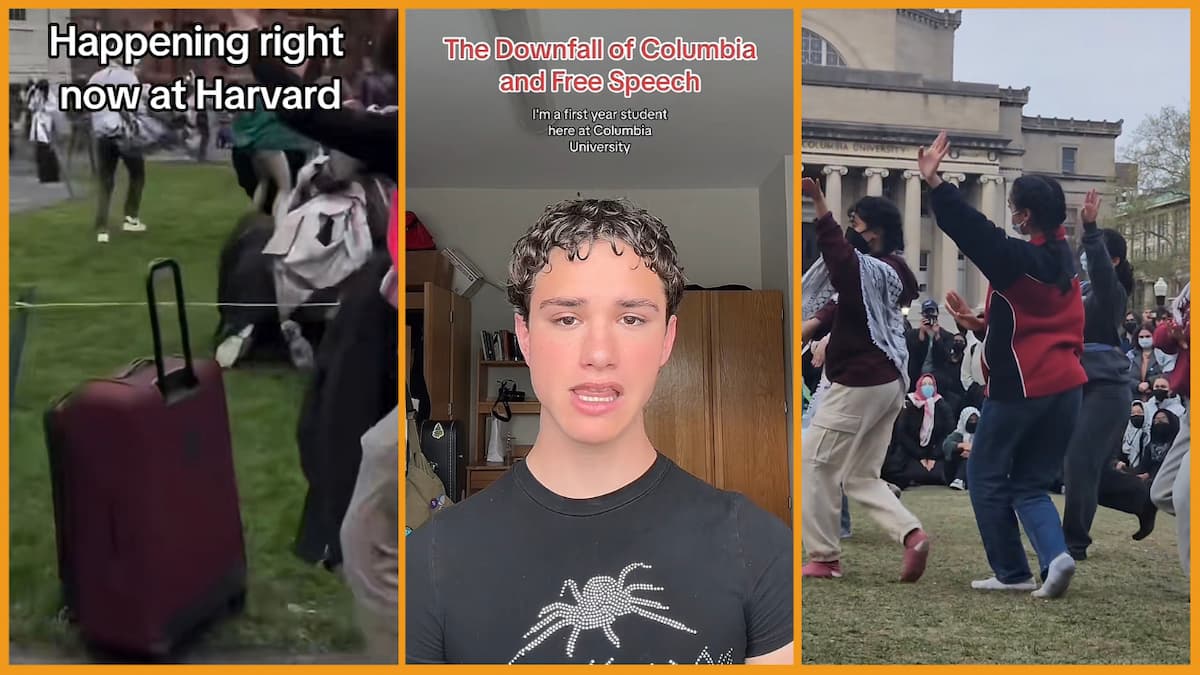Protests are breaking out on university campuses across the country as students stand in solidarity with each other.
The protests have been extensively documented on TikTok, which is yet another reason not to ban the platform. Multiple videos show students protesting outside of different university campuses including Columbia University, Texas University, Harvard, and more. Students have found themselves facing increasingly aggressive opposition from their universities with the police being called and people being arrested while others have been threatened with the prospect of the National Guard being called.
What is the reason for the protests?
It all started with a referendum at Columbia College in which students voted on whether they believed the school should cut its ties with Israeli universities. According to an article from the Columbia Spectator, the results came back with an overwhelming majority (76.55%) saying that they should financially divest from Israel as well as cancel things such as the dual degree program it has with Tel Aviv University. Despite the results of the college referendum, it doesn’t seem likely that Columbia University will listen to the voice of its students, and now things have escalated.
Pro-Gaza protests started on April 17th and an article from NBC News reports that the decision from university president, Nemat “Minouche” Shafik, to call the NYPD to remove students has led to more protests at other universities as a show of solidarity between students. It’s important to note that these protests are peaceful protests, and yet, in many cases students are finding themselves under arrest despite peaceful protests being a constitutional right.
The students are speaking out
Many individuals have taken to TikTok to tell their own horror stories about how those involved in the protests are being treated. In one instance, a first year student at Columbia University by the name of Shawn exposed exactly what the school was doing to attempt to quell the protests. In a video posted to TikTok, he explains that the university has put him on disciplinary probation until April next year for taking part in a separate climate protest in February.
The disciplinary board investigated the supposed violations three months ago concluding that he had not violated the code of conduct. However, he has since been targeted again for the same alleged violations as it had now been categorized as a pro-Palestinian protest and this intent or role would not be considered and no legal counsel would be allowed either.
The situation with the protests and the aggressive response from universities across the country has led to comparisons between what’s happening now and the Kent State protests from 1970. The protests over the war in Vietnam saw the National Guard called to the campus and resulted in the deaths of four unarmed students after the guard opened fire.
The response from the universities has been pretty alarming; suspending students for peaceful protests is a pretty heavy-handed response and in many cases is downright unfair, but the threat of the National Guard and state troopers (which have deployed in Austin) is definitely excessive. Despite this the protests are continuing on university campuses across the nation.
